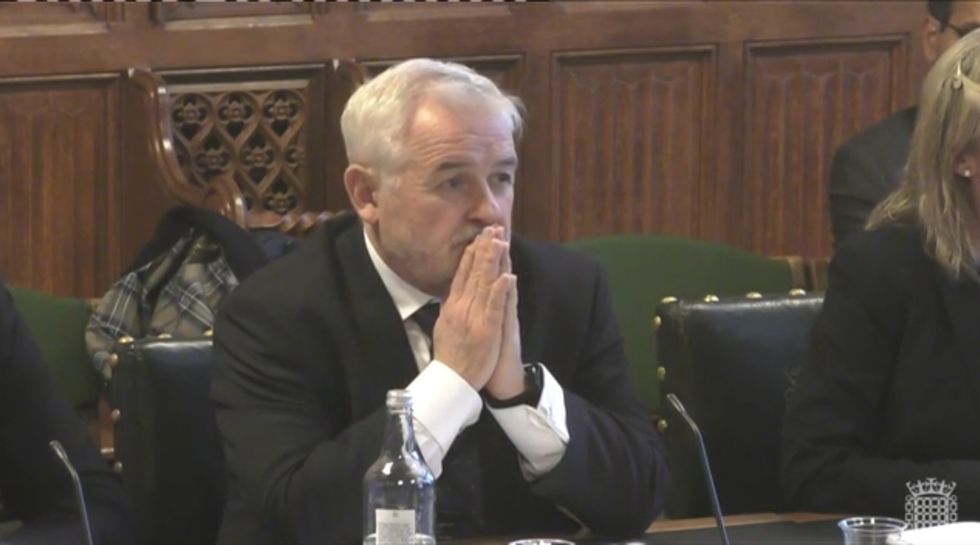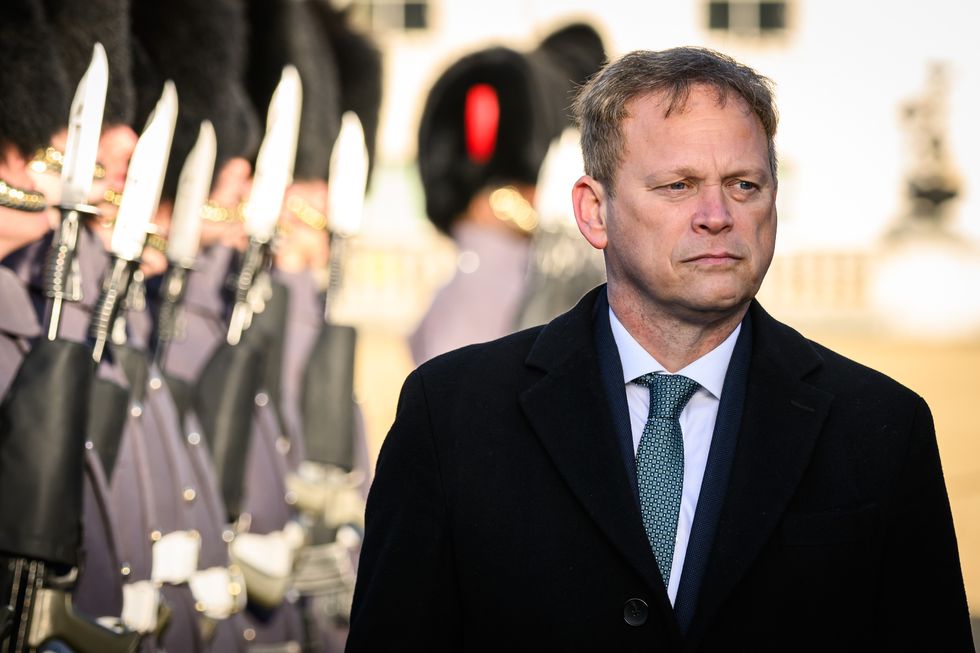A recruitment exec said even ‘the current England rugby team would struggle to join the army’
Don't Miss
Most Read
Trending on GB News
MPs have been warned that the British armed forces are “haemorrhaging” troops faster than they can recruit as uninterested young people and draconian entry requirements have left the British Army knee-deep in a “disastrous” military staffing crisis.
A decades-long recruitment slump means the British Army is at its smallest since the 1850s, and it will likely miss this year’s target by a third, outsourcing contractor Capita admitted at a defence select committee inquiry.
Capita’s chief executive of public service Richard Holroyd said 150-day waiting times for potential recruits meant young people were being “attracted elsewhere” before they could be accepted.
The recruitment delays have been blamed on the rigorous medical assessments candidates must pass in order to join the armed forces.

Richard Holroyd said 150-day waiting times for potential recruits meant young people were being “attracted elsewhere”
House of Commons
Capita’s response to the crisis has been to change standards for potential candidates – the firm has already halved the number of years ‘clear’ of asthma before people could join the army from four to two, and is planning on lowering it to just one.
It is understood a change in medical advice has led to less stringent measures being enforced.
Maria Mallet, chief operating officer for Capita’s recruitment partnership, said she had raised the idea of reducing similar restrictions on hay fever with the Ministry of Defence (MoD), but admitted they hadn’t “had an OK yet”.
Senior Conservative MP Richard Drax welcomed the move and said: “On hay fever, I’m so glad to hear what you’ve said, common sense at last.
“I cannot believe, for example, that some of David Stirling’s men did not have hayfever, but they did pretty well. I think this whole thing has got to be sorted out.”
LATEST DEVELOPMENTS:

Grant Shapps said an “arbitrary” ban on beards was contributing to army recruitment woes
PA
People with a high body mass index (BMI) or certain skin conditions, who had broken bones in childhood, or even had tattoos visible on their hands or above their collar line were also being rejected.
Capita have skirted military requirements by enrolling tattooed candidates in recruitment programmes, even though they risk having to remove them at their own expense if offered a place.
If candidates cannot afford to have their tattoos removed, Capita has sanctioned a ‘hardship fund’ to provide financial assistance.
But even with restrictions loosened, the outsourcing giant has so far only recruited 5,000 of its required 9,813 over the past year – “barely half of the people they need” according to former armed forces minister Mark Francois.
Francois said the armed forces were “haemorrhaging” three personnel per recruit, which he described as a “disaster”.
Last year, MP Richard Foord said substandard military housing was driving existing troops away from the army, while Defence Secretary Grant Shapps told the Telegraph an “arbitrary” ban on beards was contributing to its recruitment woes.
Capita predicted the army would be almost 3,000 soldiers below their target by April, and is on course to fill a paltry 20 per cent of specialised roles like HR.
Holroyd, defending the firm’s performance, said: “I think the current England rugby team would struggle to join the army.”
He said Capita was “throwing everything” at the crisis and recognised “the importance of this to the nation and to the armed forces which we serve… so we are completely committed to working to drive recruiting up”.
The army isn’t the only branch of the Forces struggling with staffing shortages – the Royal Navy, which mostly relies on an in-house recruitment system, is suffering from a six-month application backlog.
Simon Jones, chief executive of security risk management firm Triton International, said the navy system – part of which uses Capita – was “ineffective and stifles the external recruitment demand”.
Military recruitment troubles are also affecting the Royal Air Force, whose illegally discriminatory intake policies were slated last year in an official inquiry, and the Royal Marines, who fell short by almost 400 commandos in 2019 – their worst-ever year for recruitment.









